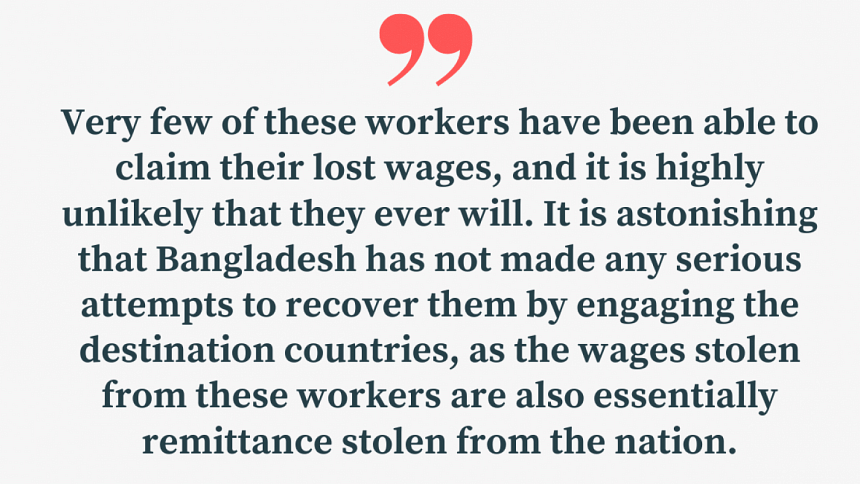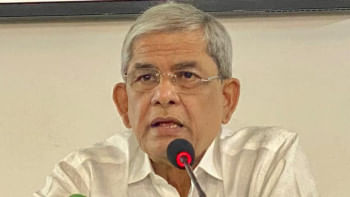Robbing the migrants blind

It is unacceptable that millions of dollars of hard-earned wages are being stolen from our expatriate workers – who leave behind their homes, often under desperate circumstances, for a better life abroad – year in and year out. In a public hearing organised in Dhaka recently, migrant workers shared horrific tales of exploitation and mistreatment, which range from withholding of wages for months on end to non-payment of overtime, from arbitrary reduction of salaries in the guise of imposing penalty to denial of other dues. It is not only employers and companies in destination countries that exploit the helplessness and ignorance of the migrants, but also the mega-employment companies that supply the workers.
What makes these tales particularly heartbreaking is that migrant workers are forced to accept this gross injustice as they have little recourse available to challenge their employers in the destination countries. How are they to file and fight cases against their employers if they fear getting fired and/or are forced to return home as soon as their jobs are terminated? Pursuing such cases in the long term is also not a financially feasible option.

When they return home, the workers find that our state institutions are equally helpless in making the employers abroad pay, in the absence of any sustained or meaningful diplomatic efforts to exert pressure on the destination countries. While paying lip service to the plight of migrant workers, the United Nations and other international agencies have thus far failed to institute a framework through which workers can claim their lost wages and hold their employers accountable.
Wage theft, which has been a harsh reality of the migration landscape for decades, took a dramatic turn during Covid, when we saw thousands of Bangladeshi workers lose, on average, USD 2,119 in wages and other entitlements when they were forced to return home from the Gulf countries, according to a survey carried out by the Bangladesh Civil Society for Migrants (BCSM) in 45 districts in 2021. Very few of these workers have been able to claim these lost wages, and it is highly unlikely that they ever will. It is astonishing that Bangladesh has not made any serious attempts to recover them by engaging the destination countries, as the wages stolen from these workers are also essentially remittance stolen from the nation.
It is clear that we need to highlight this critical issue on different regional and international platforms, and/or place the claims of wage theft before host countries through UN organisations.
Our government – like that of any other labour-supplying nation – has been held hostage by the Gulf countries, who can threaten to discontinue their deals to take in workers if we make too many demands. It is time for us to foster alliances among labour-supplying countries so we can collectively place demands before destination countries and hold them accountable for their blatant disregard for migrant workers' rights.


 For all latest news, follow The Daily Star's Google News channel.
For all latest news, follow The Daily Star's Google News channel. 






Comments